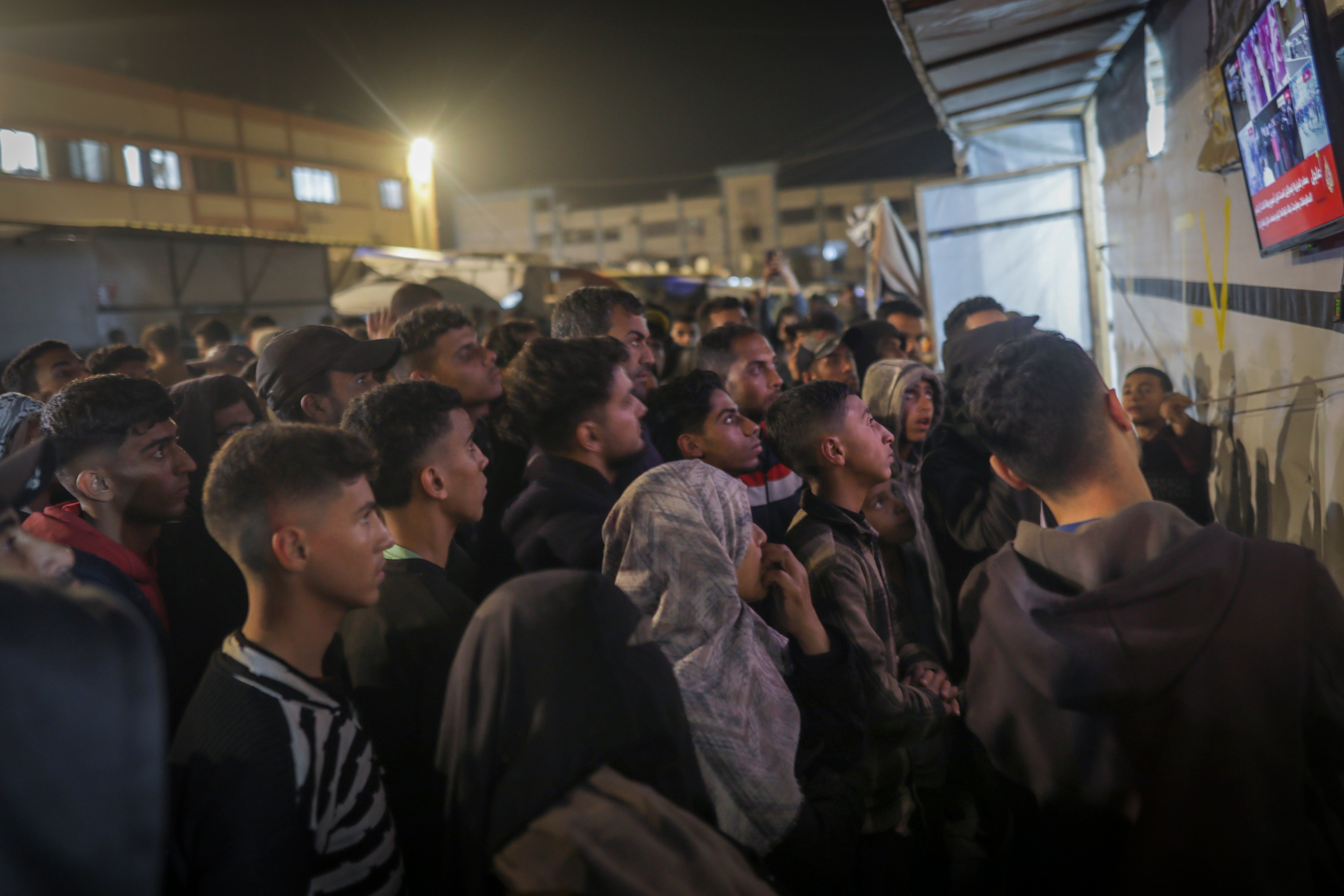Anxious civilians in Gaza are “counting the seconds” until a ceasefire is enforced, as Israeli airstrikes continued to pound the besieged strip, killing dozens of people, according to local health officials.
International diplomats and mediators scrambled to salvage the truce between the Hamas militant group and Israel, which was announced by US president Joe Biden and the Qatari leadership on Wednesday.
Despite a wobble when Israeli prime minister Benjamin Netanyahu said Hamas had attempted to “extort last-minute concessions”, the deal appeared back on track on Thursday night and is due to be ratified on Friday with fighting set to cease on Sunday.
In war-ravaged Gaza, the health ministry said waves of Israeli airstrikes continued in the meantime, killing 77 people – half of them women and children.
“We see and expect that the coming hours before the ceasefire will be bloody and harsh,” said Dr Raed Musleh, 52, an internal medicine doctor, himself homeless and displaced in the southern city of Khan Younis, where he said medics lacked drugs to treat the wounded.
“We are used to the last hours being difficult and dangerous,” he added.

Mahmoud Basal, from the Palestinian civil defence in north Gaza, urged the international community to intervene and stop the bombings so that more lives would not be lost so close to the potential end of the conflict.
“The coming hours will be very difficult if Israel continues this pace of bombing – which has already killed 77 people since the agreement was announced,” he said.
Families in Gaza said what they fear most is that the far-right elements of the Israeli government will ultimately kill the deal.
“We are counting the minutes and even the seconds for the implementation of the ceasefire on the ground,” said Rami Morjan, a university chemistry professor displaced from northern Gaza City to central Deir al-Balah.
Fifteen months of bloody conflict has claimed the lives of around 46,700 people in Gaza, according to Palestinian officials, and 1,200 in Israel. More than 90 per cent of Gaza’s 2 million population has been displaced and swathes of the strip destroyed.
Those anxiously waiting to see if the ceasefire deal will be approved, said that even if it was, the “next nightmare is just beginning”.
Hanaa Ahmed, 64, said the bombing of Gaza City, where she is sheltering, “has not stopped since the moment the ceasefire was announced”.
But she said even if the strikes do stop she is scared about the future. Famine still stalks parts of the strip, their homes are destroyed, and her family relies on farming in an area that may be engulfed in an Israeli “buffer zone”.
“We are very worried about permanently losing our lands that we bought and paid everything for,” she added.
Ibrahim Al-Muslimi, 75, a local community leader who has been displaced seven times from north Gaza, said Palestinians in the strip “need every type of assistance” after a “long, harsh wave of hunger”.
He said even if they could go back to the north, there is nothing left, and his family would only be able to stake out the land where their home once stood “if I can get a tent there”.
Dr Musleh, meanwhile, said they would not give up.
“Despite 15 months of living in hell, the people of Gaza are full of hope and optimism. We will start our life from scratch, from below zero. We have the will to bring back our life, and we have the potential to start again.”
The three-phased agreement will see the release of 33 hostages over the coming six weeks in exchange for the release of hundreds of Palestinian prisoners and an Israeli withdrawal from many parts of the territory. It is supposed to pave the way for a long-term, permanent end to the fighting, and the return of Palestinians to their homes.
Human rights groups say after such fierce bombardment, Gaza is experiencing an “unprecedented” humanitarian crisis.
A coalition of 18 NGOs, including Medical Aid for Palestinians, Oxfam, and Amnesty International, petitioned the UK government on Thursday to ensure that the truce turns into “a permanent end to Palestinian suffering” and serves as “a starting point for justice and accountability, not an endpoint that allows the Israeli authorities to continue their blockade, occupation, and oppression of Palestinians”.
Action Against Humanity said the ceasefire should also not “give Israel a blank cheque to commit as many war crimes as possible” in the lead-up. Israel has repeatedly denied committing any crimes in Gaza.

